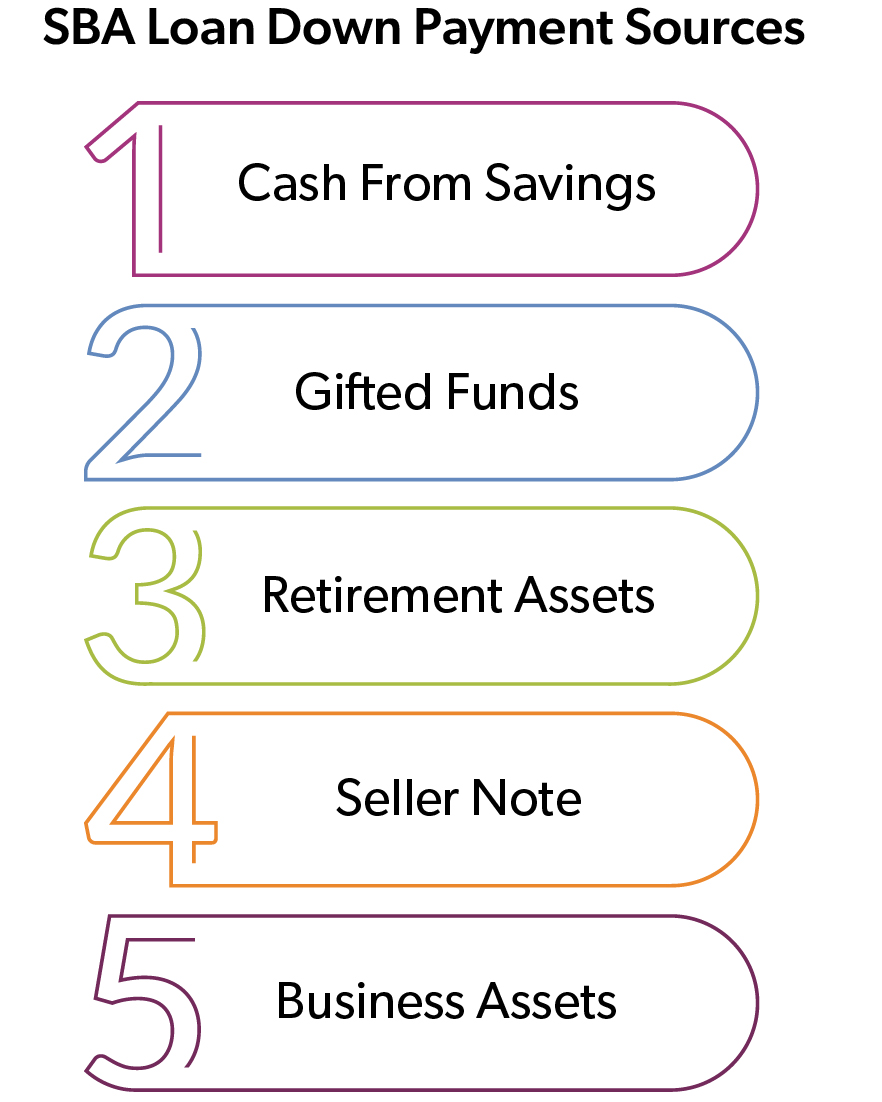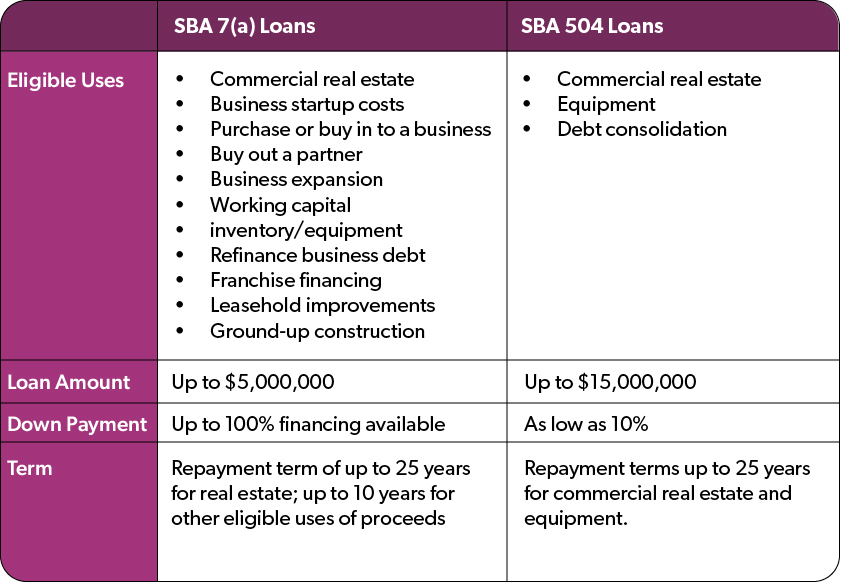As a forward-thinking business leader, understanding the details of Small Business Administration (SBA) loans is crucial to financing your growth strategy. Small business loans can help your business get started, grow, buy a building, buy equipment, renovate, hire more people, buy inventory, and much more. SBA loans are popular because they feature favorable terms like more time to repay the loan, lower down payments, and lower interest rates.
Understanding the SBA loan down payment requirements for different SBA loan options can help you choose the best financing route for your needs.
Where Can My SBA Loan Down Payment Come From?
SBA loans allow for various down payment options to cover the amount required. Sources for a down payment on an SBA loan include:

- Cash from personal savings and investments: Your own savings or personal assets outside your business’s balance sheet can be a viable source for all or part of the down payment.
- Friends and family gifted funds: You may get down payment support from loans or gifts from people close to you. These will need to be documented carefully with an affidavit gift letter when applying for an SBA loan.
- 401K or IRA funds: In some cases, you can use retirement funds you have saved for all or part of a down payment on an SBA 7(a) loan. Called a Rollover as Business Startup (ROBS), this option allows you to tap into these funds, sometimes with restrictions. Here’s how one of First Business Bank’s clients bought a business using ROBS down payment funds.
- Seller financing: Seller financing as a complementary method can be a strategic move for SBA loan borrowers. A seller note involves the seller agreeing to finance a portion of the purchase price, which can then be used as part or all of the down payment requirement. This approach not only reduces the upfront cash requirement for the buyer but also demonstrates to lenders a shared risk and commitment from the seller, potentially making the loan application more attractive.
- Business assets: Existing business assets like equipment, property, and inventory may be leveraged, especially if used as collateral. Business owners may be able to tap into equity they have built up in these assets.
When Is A Down Payment On An SBA Loan Necessary?
In most cases, securing an SBA loan will require you to make an upfront investment, known as an SBA loan down payment, at closing. This demonstrates your commitment to the business and reduces the risk for the lender. Here are some typical scenarios when an SBA loan down payment is required:
- Business acquisitions. If you’re using an SBA loan to buy an existing business, usually a down payment is required. An SBA loan down payment shows a lender that you are invested in the business and are motivated and dedicated to its future success.
- Startup businesses. When applying for an SBA loan to fund a startup, lenders usually require a down payment to reduce the risk of financing a new business that lacks a track record or history of earnings.
Minimum Down Payment For SBA 7(a) Loans
For SBA 7(a) loans, the most common loan program, SBA loan down payment requirements often range between 0%-10% based on factors like your credit score, collateral, loan use, and the bank’s policy through which you’re applying.
Typically, SBA 7(a) loans used for startups and business acquisitions require a down payment, however, SBA 7(a) loans used for expansion financing sometimes qualify for 100% financing with no down payment.
Minimum Down Payment For SBA 504 Loans
SBA 504 loans are used for fixed business assets, like buying commercial real estate, and often require at least a 10% SBA loan down payment towards the total project.
Which SBA Loan Option Is Right for You?
Here is an overview of the loan type features and terms for two common small business loan options: SBA 7(a) and 504 loans. Review the typical loan amounts, down payment requirements, repayment terms, and eligible uses to determine which loan option is right for you.

Navigating SBA Loan Down Payment Options For Business Growth
In the end, securing an SBA loan requires carefully evaluating your financing needs, eligibility for different programs, and available down payment options. Whether you're just starting out or looking to expand, having a strategic plan for the down payment demonstration can go a long way in qualifying for favorable SBA loan terms. By tapping into the right sources like personal funds, gifts, retirement accounts, seller financing, or existing business assets, you can strengthen your investment commitment and increase your chances of SBA loan approval. With prudent preparation and the guidance of lending experts, small business loans can provide the capital injection needed to propel your business toward sustainable growth and success.





